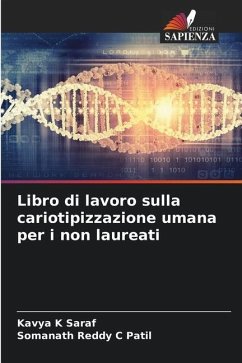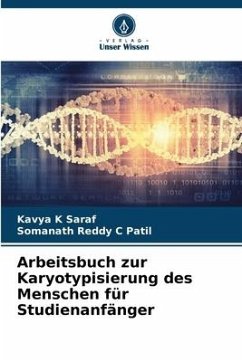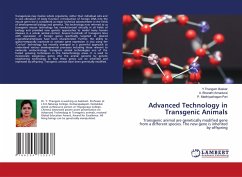
HUMAN KARYOTYPING WORKBOOK FOR UNDER GRADUATES
Versandkostenfrei!
Versandfertig in 6-10 Tagen
40,99 €
inkl. MwSt.

PAYBACK Punkte
20 °P sammeln!
Humans have 23 pairs of chromosomes, i.e., one pair of sex chromosomes (X and/or Y) and 22 pairs of autosomes (chromosomes 1-22). Many human genetic disorders result from unbalanced chromosome abnormalities, in which there is a net gain or loss of genetic material. Numeric and structural chromosomal abnormalities occur in approximately 0.6% of live births,1 and often result in dysmorphism, malformations, and/or developmental disabilities. The resulting phenotypes are caused by the imbalance of one or more dosage-sensitive genes in a particular chromosome or chromosomal segment. Such gene imbal...
Humans have 23 pairs of chromosomes, i.e., one pair of sex chromosomes (X and/or Y) and 22 pairs of autosomes (chromosomes 1-22). Many human genetic disorders result from unbalanced chromosome abnormalities, in which there is a net gain or loss of genetic material. Numeric and structural chromosomal abnormalities occur in approximately 0.6% of live births,1 and often result in dysmorphism, malformations, and/or developmental disabilities. The resulting phenotypes are caused by the imbalance of one or more dosage-sensitive genes in a particular chromosome or chromosomal segment. Such gene imbalances often have devastating consequences and cause 25% of all miscarriages and stillbirths, and 50%-60% of first-trimester miscarriages. Numeric abnormalities, or aneuploidies, result from the gain or loss of an entire chromosome. Most aneuploidies result from improper segregation of the chromosome pairs during meiosis. Numeric abnormalities comprise the most common cytogenetic abnormalities. Numeric abnormalities are more tolerated for the sex chromosomes and only certain autosomes. The most common monosomy is that for the X chromosome (45,X) found in Turner syndrome.












